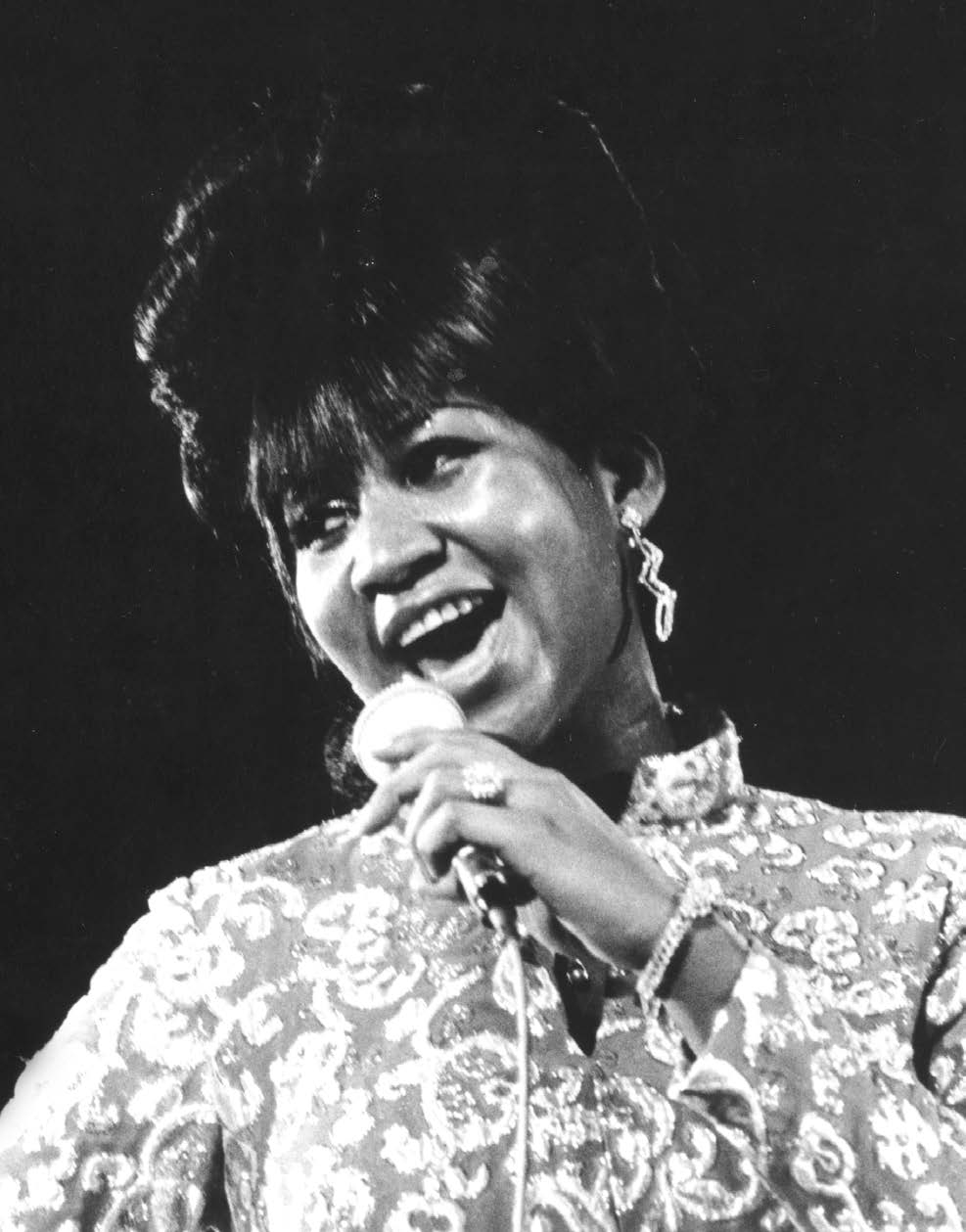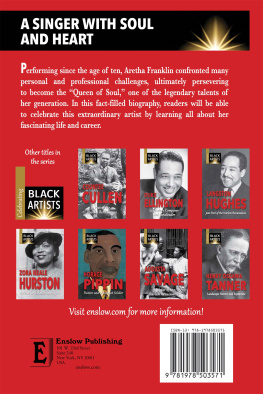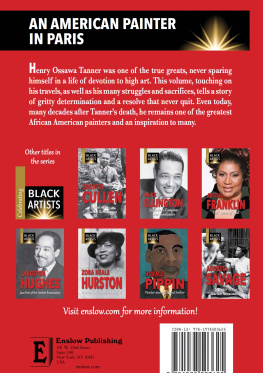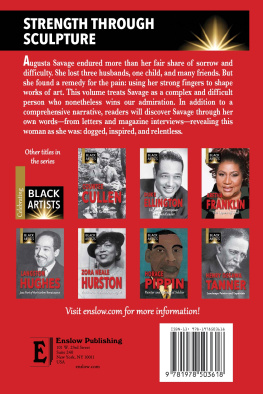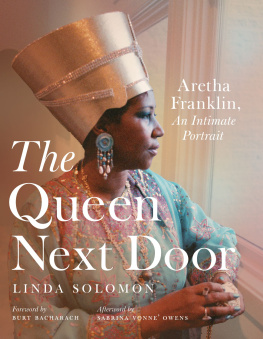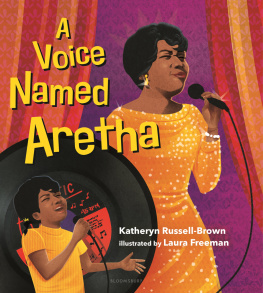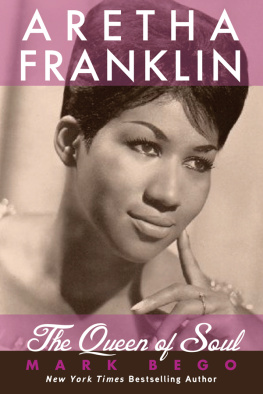Published in 2020 by Enslow Publishing, LLC.
101 W. 23rd Street, Suite 240, New York, NY 10011
Copyright 2020 by Enslow Publishing, LLC.
All rights reserved.
No part of this book may be reproduced by any means without the written permission of the publisher.
Names: Crompton, Samuel Willard, author. | Etinde-Crompton, Charlotte, author.
Title: Aretha Franklin: the queen of soul / Samuel Willard Crompton and Charlotte Etinde-Crompton.
Description: New York: Enslow Publishing, 2020. | Series: Celebrating black artists | Includes bibliographical references and index. | Audience: Grades 712.
Identifiers: LCCN 2018015696| ISBN 9781978503571 (library bound) | ISBN 9781978505322 (pbk.)
Subjects: LCSH: Franklin, ArethaJuvenile literature. | Soul musicians United StatesBiography. | African American singersBiographyJuvenile literature. | SingersUnited StatesBiographyJuvenile literature. Classification: LCC ML3930.F68 C76 2019 | DDC 782.421644092 [B]dc23 LC record available at https://lccn.loc.gov/2018015696
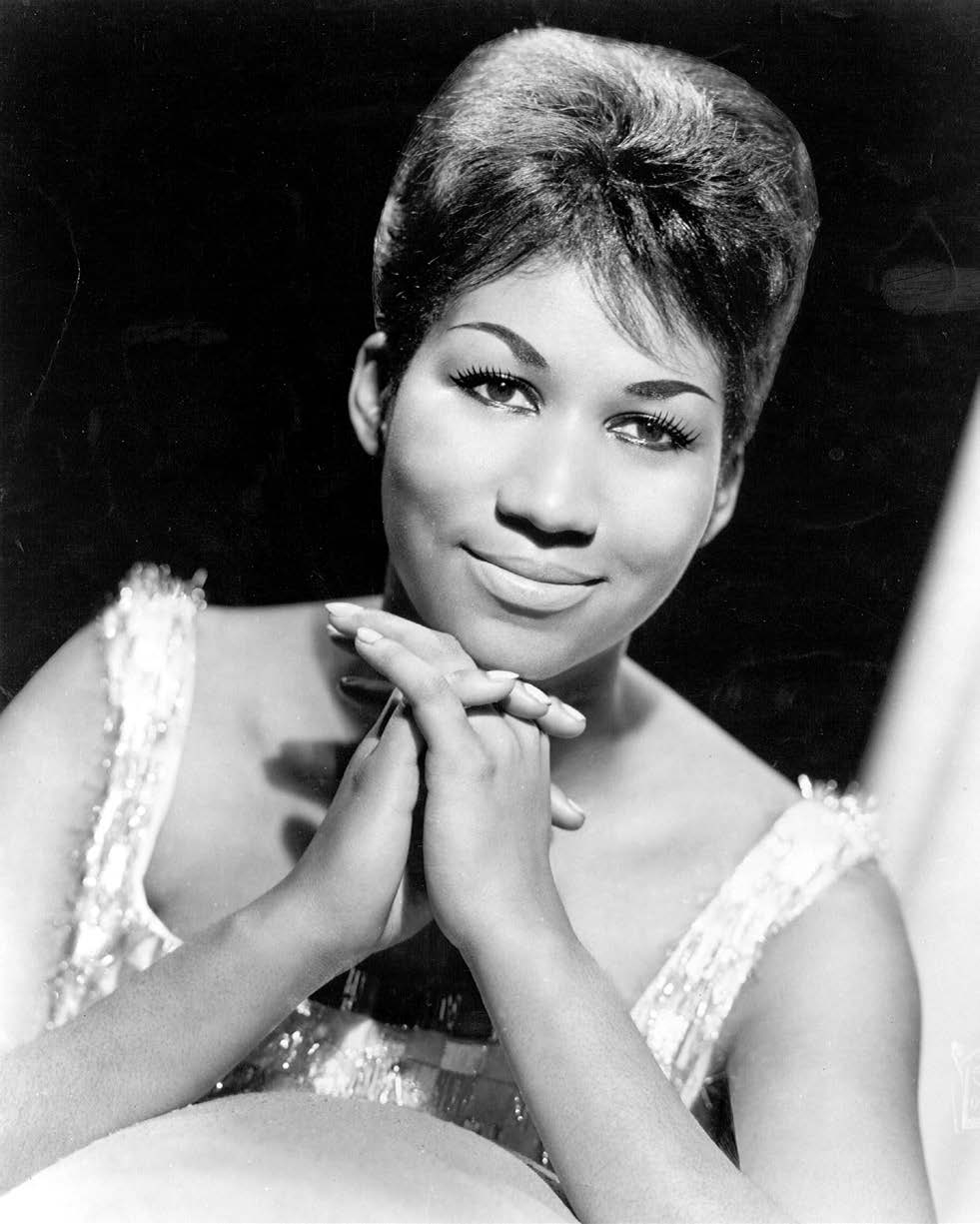
It became clear from a very early age that Aretha Franklin had an astounding talent.

Earning R-E-S-P-E-C-T
B orn in Memphis, Tennessee, in 1942, Aretha Franklin recorded her eleventh studio album by the time she was twenty-five years old. The reason behind her significant head start is that she learned music in the family home, practically at the feet of her renowned father, C. L. Franklin, who was a legendary figure in both ministry and civil rights activism in the 1950s and 1960s. Singing professionally at the age of fourteen, Aretha Franklin had come a long way as a gospel singer, but she was about to burst into a new genre.
Blessed with a powerful voice, Franklin was already well known to a core constituencylisteners of gospel music. But she was little known to the wider audience of popular music lovers. Franklin changed her recording label from Columbia to Atlantic in 1966 and released the album I Never Loved a Man the Way I Love You in the early spring of 1967. The world of popular music was never the same again.
The Breakthrough Album
I Never Loved a Man the Way I Love You contains eleven songs. For attentive listeners of 1967, it was clear that the entire album was a major success. But for casual listeners, one song in particular stood out: Respect. Originally written and recorded by soul music superstar Otis Redding, this new version of the song struck a chord with fans, establishing Aretha Franklin as a force to be reckoned with. In the original incarnation, Redding sings All Im askin for/ Is a little respect/ When I come home, playing the role of the harried husband, demanding respect in his role as the family breadwinner.
On first hearing the reworked lines on Franklins album, one imagines an African American housewife or girlfriend, pining for the man in her life. But the more one listens, the bigger the story becomes. Franklins cover version turned the gender politics on its head and transformed Reddings wearied male complaint into a feminist anthem. Spelling out respect in the now iconic chorus of R-E-S-P-E-C-T, Franklin gave the song a brand-new hook, one that was totally irresistible to listeners.
And when Respect ruled the airwaves in the summer of 1967, tens of millions of peopleblack and white, rich and poor, blue collar and white collarlistened with appreciation and excitement. Rolling Stone describes it thus:
Arethas voice reached out and took hold of you in whatever way you needed it. A radio playing Respect could be tuned in at four different households, and each person singing along with sock-it-to-me would hear Arethas phrasings as personal: the working woman, tired of hassle from the boss; the lover wishing for more from a hesitant mate; the black-and-proud activist, readying himself for another rally; the bouffanted teenager, sick of her parents telling her what to do.

Legendary singer Otis Redding originally recorded Respect, but Aretha Franklin turned the song into a hit.
Otis Redding
Much like Aretha Franklin, Otis Redding began his musical career at a very young age. When he was fifteen years old, Redding dropped out of high school and eventually joined the backing band for rocknroll icon Little Richard. In 1964, Redding released his debut album, Pain in My Heart, meeting with great success as the album peaked at number twenty on the R&B charts. Reddings songs often contained a powerful feeling of yearningThese Arms of Mine, Mr. Pitiful, and Ive Been Loving You Too Long all convey a sense of longing and loneliness supported by the intensity and passion in Reddings vocals.
Sadly, his promising career was cut short when Redding was just twenty-six years old. On December 10, 1967, Redding and his band boarded a plane in the middle of a severe rainstorm, headed to a performance in Wisconsin. Just 4 miles (6.4 kilometers) away from their destination, the plane crashed, killing almost everyone onboard, including Otis Redding. Perhaps his most famous song, (Sittin On) The Dock of the Bay was released after his death in January 1968. Its the only Redding single to reach number one on the Billboard Hot 100 chart.
Within a years time, I Never Loved a Man the Way I Love You was purchased 1.2 million times. And five of the singles hit gold, meaning each sold more than one million copies.
True, there had been massive breakthroughs before: One thinks of the Beatles in 1964 and the Rolling Stones in 1966. But those were groups, with as many as four potential voices. In this case, the success was built on one voice, and it happened to belong to a young black American woman. That had never happened before.
The Critical Response
Almost every segment of American society registered approval of I Never Loved a Man the Way I Love You. It took the critics a little longer to catch up.
Slightly over a year after I Never Loved A Man the Way I Love You was released, Time magazine weighed in. During this period, Time was the most influential of all American periodicals, read by millions. For its June 28, 1968, issue, it put Aretha Franklin on the cover and asked a question:
Has it got soul? Man, thats the question of the hour. If it has soul, then its tough, beautiful, out of sight. It has the authenticity of collard greens boiling on the stove, the sassy style of the boogaloo in a hip discothque, the solidarity signified by Soul Brother scrawled on a ghetto storefront. But what is soul?
